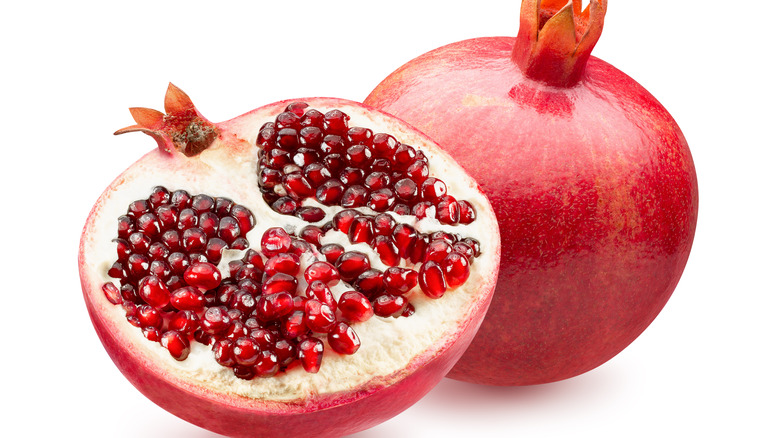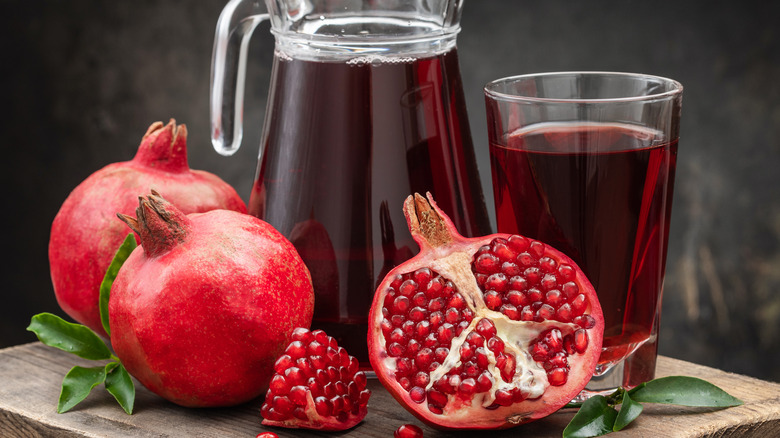This Is Why Women Should Start Eating More Pomegranates
A number of religions have embraced pomegranates as a sacred symbol. For example, Greek mythology details a vegetation goddess named Persephone becoming queen of the underworld after eating a few pomegranate seeds. Pomegranates have also been used in Christian artwork as a symbol of resurrection and fertility, according to the British Medical Journal (BMJ).
It turns out that pomegranates have been held sacred for a very good reason. Pomegranates are not only full of seeds, but they are also full of important nutrients. A cup full of pomegranate seeds and their coverings contains 7 grams of fiber and 3 grams of protein. In addition, just one cup will cover 30% of the recommended daily intake (RDI) of vitamin C, 36% of the RDI of vitamin K, 16% of the RDI of folate, and 12% of the RDI of potassium, says Healthline. Pomegranate juice also has three times as much antioxidant activity as green tea and red wine. With this in mind, it is no surprise that pomegranates (and pomegranate juice) have a number of health benefits.
Health benefits of pomegranates
While the National Institutes of Health (NIH) warns that strong scientific evidence is limited, Healthline notes that pomegranates have anti-inflammatory properties. In fact, a clinical trial (via Journal of Research in Medical Sciences) found that a daily cup of pomegranate juice may reduce inflammation in people with diabetes.
The American Heart Association (AHA) cites research that pomegranates may even lower blood pressure. This is generally good, as high blood pressure can predispose a person to heart disease. That being said, pomegranates should be consumed with caution (and doctor's approval) if you are on blood pressure medication, as you don't want to reduce your blood pressure too much.
Pomegranates may be beneficial for women in particular. A small 2011 study (via Israel Medical Association Journal) suggested pomegranates may reduce symptoms of rheumatoid arthritis, a condition to which women are particularly vulnerable. Moreover, Healthline cites some lab studies that suggest pomegranates may be useful against breast cancer, one of the most common cancers in women, by inhibiting and possibly even killing cancer cells. Of course, the evidence is limited and much more research is needed.
Regardless, it wouldn't hurt to ditch unhealthy snacks and satisfy your cravings for sweetness with pomegranate seeds instead. A 2003 study (via Nutrition) found that overweight women who enjoyed at least three servings of fruit per day were more likely to reach a healthy weight than those who ate less. The AHA notes that in addition to being eaten on their own, pomegranates can be added to soups, smoothies, and salads.


